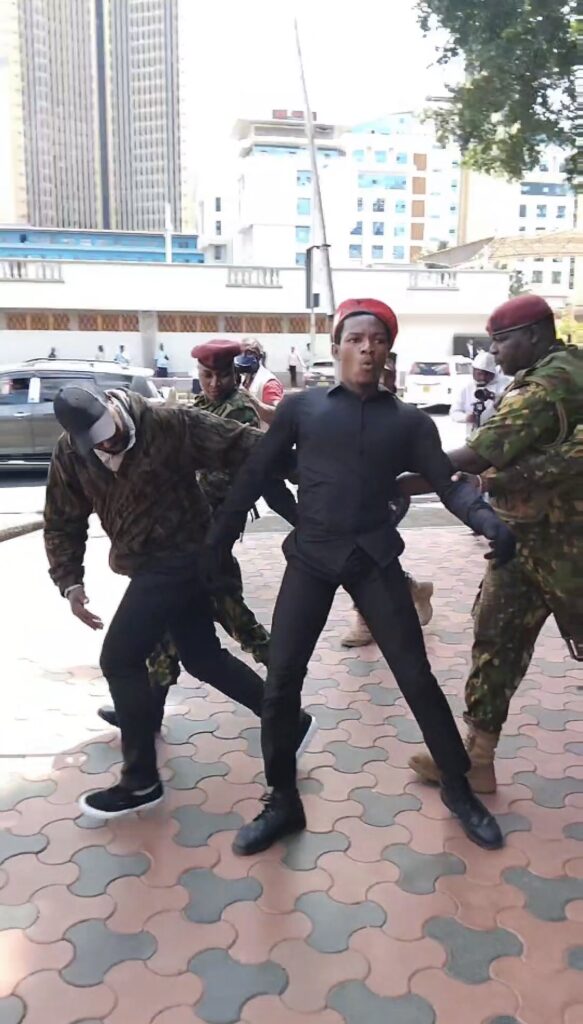During the tumultuous protest, the self-proclaimed commander-in-chief of Gen Z stood defiantly in front of a line of heavily armored police officers. With a voice that carried both conviction and urgency, he declared, “These police who are detaining me, I am fighting for their children.” His words reverberated through the crowd, igniting a renewed sense of purpose among the demonstrators. They echoed his chant, “RUTO MUST GO,” with increasing fervor, their voices merging into a powerful chorus of dissent.
The scene was a vivid tableau of modern resistance. Young activists held banners aloft, their vibrant colors contrasting starkly with the grim expressions of the officers. Social media influencers live-streamed the event, ensuring that the message spread far beyond the city streets. The commander-in-chief’s arrest, far from silencing him, seemed to amplify his reach. As he was led away, his raised fist became a symbol of defiance, captured in countless photographs that would soon go viral.
Read Also
In the days that followed, his words became a rallying cry for a generation disillusioned by broken promises and unfulfilled dreams. Memes and videos circulated widely, each one adding to the momentum of the movement. “I am fighting for their children” was emblazoned on t-shirts, posters, and digital banners, a poignant reminder of the intergenerational stakes at play.
The government’s response was swift and severe, yet it only served to galvanize the protesters further. Each arrest, each clash with law enforcement, fueled a growing narrative of resistance. The commander-in-chief of Gen Z, now a prominent figure in the struggle, continued to inspire from his cell. Letters smuggled out from the prison revealed his unwavering commitment to the cause and called for peaceful but persistent protest.
Watch Video
As the movement gained international attention, solidarity marches sprouted in cities around the world. Global leaders and human rights organizations condemned the crackdown, putting pressure on the government to heed the demands of its youth. The phrase “RUTO MUST GO” transcended its local origins, becoming a universal slogan for justice and accountability. The struggle of one generation became a beacon of hope for many, a testament to the enduring power of collective action in the face of adversity.


